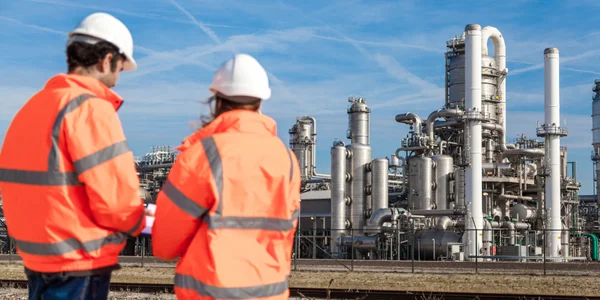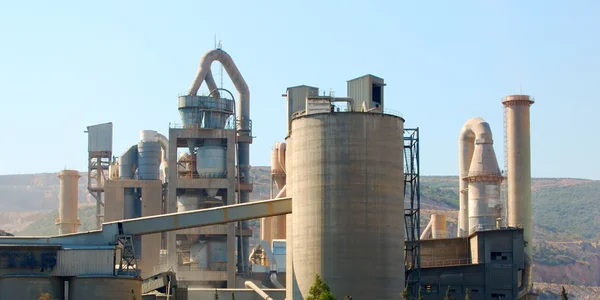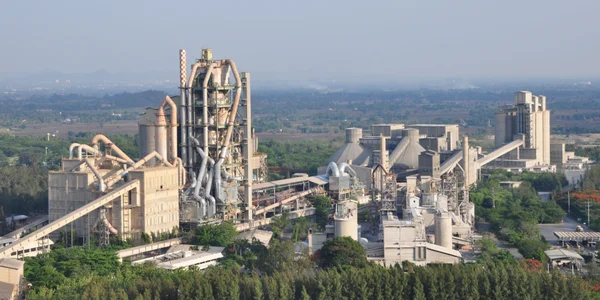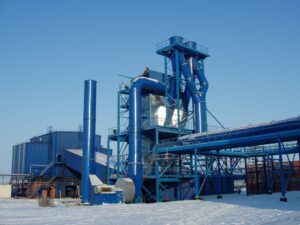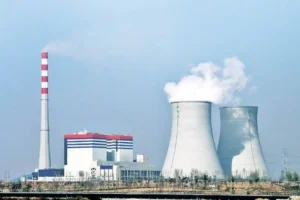멀티 사이클론 집진기
부엌
본사

독일
-
Intensiv 필터 Himenviro Technologies GmbH
Neustraße 45 - 49, 42553, Velbert, 독일/독일 - +49 20534200990
지역 사무소

대 브리튼 섬
-
Intensiv Filter Himenviro UK Limited
47, Bath Street WS13BX, 월솔 웨스트 미들랜드, 영국 - +44 1922 628893
지역 사무소

아랍에미리트
-
집중 필터 Himenviro Technologies FZE – LLC
비즈니스 센터, 샤르자 출판 도시 자유무역지구, 샤르자, UAE - +971-556074697
지역 사무소

인도
-
인텐시브-필터 히멘비로 프라이빗 리미티드
D-247/11, Sector-63, Noida - 201301, Uttar Pradesh, India - +91-120-4642-500
지역 사무소




인도
-
인텐시브-필터 히멘비로 프라이빗 리미티드
D-247/11, Sector-63, Noida - 201301, Uttar Pradesh, India - +91-120-4642-500
지역 사무소




인도
-
인텐시브-필터 히멘비로 프라이빗 리미티드
D-247/11, Sector-63, Noida - 201301, Uttar Pradesh, India - +91-120-4642-500
산업용 멀티클론 집진 시스템
사이클론 다음에, 멀티클론 집진 시스템은 기계적 집진기입니다. 챔버 내부에는 무거운 먼지 입자를 공기 흐름에서 분리하는 여러 개의 평행한 사이클론 튜브가 있습니다. 이것은 일부 응용 분야에서 주요 스파크 트래퍼 역할을 하며 백 필터 또는 집진기의 먼지 부하를 줄이는 주요 분리기 역할을 합니다.
멀티 클론 집진기에 사용되는 주철 수집 튜브는 다른 재료로 만든 튜브보다 오래갑니다. 고온이나 상당한 침식이 있는 응용 분야의 경우 특수 합금 수집 튜브와 베인이 제공됩니다.
멀티클론 집진 시스템의 특징
- 움직이거나 회전하는 부품이 없으므로 유지 관리가 필요 없습니다.
- 다양한 응용 프로그램을 위한 다양한 튜브 디자인
- 제품 선택에 대한 포괄적인 경험
- 낮은 작동 압력 강하
- 멀티클론을 형성하기 위한 교체 가능한 제작/주조 합금 튜브
- 흡입 원심 송풍기는 최대 사이클론 효과를 제공합니다.
- 견고한 구조
- 더 높은 먼지 분리 효율
- 교체 가능한 튜브는 주조 합금/강철로 제작될 수 있습니다.
- 유지관리를 위한 쉬운 접근을 위한 검사 도어
- 연속 작동을 위한 회전 밸브 장착
애플리케이션
멀티클론의 응용
- 비료 산업: 인산염 암석 건조기 및 소성기, 건조기
- 비철: 구리 반사로, 라에아 고로
- 펄프 및 제지: 석회 가마, 백액 회수, 나무껍질 보일러
- 설탕 산업: 보일러 연기 가스, 포장 섹션
- 광물 제품: 아스팔트 스톤 건조기, 시멘트 가마
- 제약품: 정제코팅팬 등
- 철강 산업: 고로, 전기 아크로, BOF 등


프로세스
우리의 서비스
사례 연구
자주 묻는 질문
1. What is a multi-cyclone dust collector?
A multi-cyclone dust collector is a device that cleans air by removing dust particles. It contains many small cyclones working together to capture dust from the air. This system is more efficient than single cyclones because the smaller cyclones create greater centrifugal force, improving dust separation.
2. How does a multi-cyclone dust collector work?
A multi-cyclone dust collector works by using multiple small cyclones to spin the incoming dusty air. The spinning motion forces heavier dust particles to move outward toward the cyclone walls, where they lose speed and fall into a collection area. The cleaned air then moves upward through the center of the cyclones and exits the collector.
3. What are the benefits of using a multi-cyclone dust collector?
Using a multi-cyclone dust collector offers several benefits:
- 고효율성: It effectively captures fine dust particles, improving air quality.
- 내구성: With no moving parts, it requires minimal maintenance and has a long service life.
- Space-Saving Design: Its compact size makes it suitable for facilities with limited space.
- 비용 효율성: It operates without the need for filters, reducing replacement costs.
4. In which industries are multi-cyclone dust collectors commonly used?
Multi-cyclone dust collectors are commonly used in industries such as:
- 목공: To capture sawdust and wood particles.
- Cement Plants: For removing cement dust from the air.
- Steel Mills: To collect metallic dust and particles.
- 식품 가공: To maintain clean air by removing food dust particles.
제약품: To ensure air purity by capturing fine dust during production.
5. How efficient are multi-cyclone dust collectors in removing dust particles?
Multi-cyclone dust collectors are highly efficient, capable of capturing particles as small as 5 microns with commendable efficiency. Their design, featuring multiple small cyclones, enhances their ability to separate a broad spectrum of particle sizes, making them suitable for industries requiring rigorous dust control.
6. What factors can affect the performance of a multi-cyclone dust collector?
Several factors can affect the performance of a multi-cyclone dust collector:
- 사이클론 수량: More cyclones can lead to better dust separation.
- 가스 흐름 분배: Evenly distributed gas flow ensures optimal performance.
- 압력 강하: Higher resistance to gas flow can reduce efficiency; managing energy consumption is vital.
7. How does a multi-cyclone dust collector compare to a single cyclone separator?
A multi-cyclone dust collector is generally more efficient than a single cyclone separator. The multiple smaller cyclones in a multi-cyclone system create greater centrifugal force, leading to better separation of dust particles, especially finer ones. This design also allows for handling larger volumes of air while maintaining high efficiency.
8. What maintenance is required for a multi-cyclone dust collector?
Maintenance for a multi-cyclone dust collector is minimal due to the lack of moving parts. Regular inspections should be conducted to check for wear or blockages, especially in the cyclone inlets and dust discharge areas. Ensuring that seals are intact and that collected dust is removed promptly will help maintain optimal performance.
9. Can a multi-cyclone dust collector handle high-temperature gases?
Yes, a multi-cyclone dust collector can handle high-temperature gases. They are designed to operate at high temperatures, making them suitable for processes involving hot gases, such as those in cement kilns or metal smelting operations. Special materials and designs can be used to accommodate specific temperature requirements.
10. Are multi-cyclone dust collectors suitable for capturing very fine dust particles?
Multi-cyclone dust collectors are effective at capturing fine dust particles, typically down to 5 microns in size. However, for extremely fine particles, additional filtration methods, such as fabric filters or electrostatic precipitators, may be used in conjunction with multi-cyclone systems to achieve higher efficiency.

